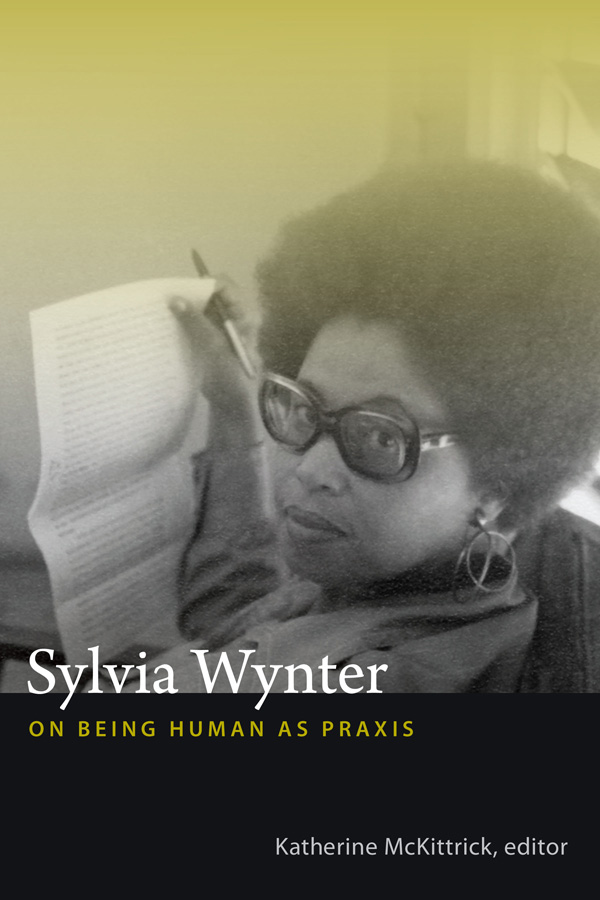Black Quantum Futurism: Space-Time Collapse 1: From the Congo to the Carolinas (2016)
Filed under book | Tags: · afrofuturism, black people, futurism, race, theory, time

“Space-Time Collapse is an experimental writing and image series applying Black Quantum Futurism practices and theory to various space-time collapse phenomenon.
This inaugural collection explores possible space-time narratives and temporal perspectives of enslaved Black African ancestors, pre- and post-liberation. The slave ships and plantations themselves are traversed by the visionaries as chronotopes containing layers of different times, imprinted by the experiences of the people held captive therein.
The featured writers and visionaries attempt to visualize, hear, understand, and feel the experience of time overwritten — the rewriting of conceptions of the past, present, and future to a people displaced by the transatlantic slave trade. The works also examine perceptions of time and space in relation to Black memory, historical and societal change, systems and institutions, and technological development, and how these perceptions are sifted through or persist into the present. Some propose ways and tools for shifting the dominant linear progress narrative with alternative concepts and shapes of time.
Featuring new visions from Rasheedah Phillips, Joy KMT, Thomas Stanley, PhD, Ytasha Womack, Camae Ayewa, Dominique Matti, Theo Paijmans, Alex Smith, and Femi Matti, with a foreword by Alicia J. Lochard.”
Co-Edited by Dominique Matti and Rasheedah Phillips
Publisher AfroFuturist Affair/House of Future Sciences Books, Philadelphia, PA, 2016
ISBN 9780996005067, 0996005064
108 pages
PDF (27 MB)
Soundscapes
Marina Gržinić (ed.): Border Thinking: Disassembling Histories of Racialized Violence (2018)
Filed under book | Tags: · borders, europe, immigration, migration, necropolitics, politics, race, racialization, racism, refugees

“Border Thinking: Disassembling Histories of Racialized Violence aims to question and provide answers to current border issues in Europe. Central to this investigation is a refugee crisis that is primarily a crisis of global Western capitalism and its components: modernization, nationalism, structural racism, dispossession, and social, political, and economic violence.
In this volume, these notions and conditions are connected with the concept of borders, which seems to have disappeared as a function of the global neoliberal economy but is palpably reappearing again and again through deportations, segregations, and war. How can we think about these relations in an open way, beyond borders? Is it possible to develop border thinking for a radical transformation, as a means to revolutionize the state of things? To do this, we must reconsider what is possible for the social and the political as well as for art and culture.”
With contributions by Ilya Budraitskis, Maira Enesi Caixeta, C.A.S.I.T.A., Yuderkys Espinosa Miñoso, Miguel González Cabezas, Marina Gržinić, Juan Guardiola, Çetin Gürer, Neda Hosseinyar, Njideka Stephanie Iroh, Adla Isanović, Fieke Jansen, Tjaša Kancler, Zoltán Kékesi, Betül Seyma Küpeli, Gergana Mineva, Musawenkosi Ndlovu, Stanimir Panayotov, Suvendrini Perera, Jelena Petrović, Khaled Ramadan, Rubia Salgado, Marika Schmiedt, Joshua Simon, Aneta Stojnić, Shirley Anne Tate, Göksun Yazıcı, Hiroshi Yoshioka.
Publisher Sternberg Press, Berlin, 2018
Publication Series of the Academy of Fine Arts Vienna, 21
ISBN 9783956793837
308 pages
via AkBild Vienna
Sylvia Wynter: On Being Human as Praxis (2015)
Filed under book | Tags: · black people, blackness, body, colonialism, consciousness, creolization, human, human ecology, indigenous peoples, knowledge, land, migration, modernity, philosophy, race, racism, representation, slavery, territory, theory, violence

“The Jamaican writer and cultural theorist Sylvia Wynter is best known for her diverse writings that pull together insights from theories in history, literature, science, and black studies, to explore race, the legacy of colonialism, and representations of humanness. Sylvia Wynter: On Being Human as Praxis is a critical genealogy of Wynter’s work, highlighting her insights on how race, location, and time together inform what it means to be human. The contributors explore Wynter’s stunning reconceptualization of the human in relation to concepts of blackness, modernity, urban space, the Caribbean, science studies, migratory politics, and the interconnectedness of creative and theoretical resistances. The collection includes an extensive conversation between Sylvia Wynter and Katherine McKittrick that delineates Wynter’s engagement with writers such as Frantz Fanon, W. E. B. DuBois, and Aimé Césaire, among others; the interview also reveals the ever-extending range and power of Wynter’s intellectual project, and elucidates her attempts to rehistoricize humanness as praxis.”
Essays by Katherine McKittrick, Denise Ferreira da Silva, Walter D. Mignolo, Bench Ansfield, Nandita Sharma, Rinaldo Walcott, Carole Boyce Davies, Demetrius L. Eudell, and a conservation with Sylvia Wynter.
Edited by Katherine McKittrick
Publisher Duke University Press, Durham and London, 2015
ISBN 9780822358343, 0822358344
xiii+290 pages
Reviews: Anthony Bayani Rodriguez (Antipode, 2015), Lea Hülsen (Kult, 2016), Kaiama L. Glover (Contemporary Women’s Writing, 2016), Inge Mathijssen (philoSOPHIA, 2018), Lauren Nelson (E3W Review of Books, 2019).
Comment (0)
